Jeff Shelnutt's Blog, page 2
March 31, 2016
My Top Ten Missionary Biographies
Many factors contribute to a good missionary biography.
However, I’ve managed to narrow them all down to one: its personal impact on me.
Each and every missionary biography I’ve read finds expression somewhere in my life and ministry. I am grateful for these missionaries’ example. I’m also grateful for those who took the time to research and record their stories.
This list is only drawn from the missionary biographies that I’ve personally read—because obviously, I haven’t read them all.
My Top Ten Missionary Biographies
(I won’t even try to put them in order of importance.)
1) Behind the Ranges by Geraldine Taylor
James Fraser turned his back on a lucrative career in engineering. He also gave up the possibility of success as an accomplished concert pianist. Arriving in China at age 22, Fraser devoted his life “behind the ranges” to the unreached Lisu people.
His missionary methods in the early twentieth-century were not only unorthodox but also doubted by his peers. Yet his insistence on self-supporting, indigenous churches is the model that many church planters emulate today.
For all of that, Fraser’s greatest influence on me was his prayer life. He made prayer a priority above all else. The Lord honored his faithfulness by answering his bold and specific requests.
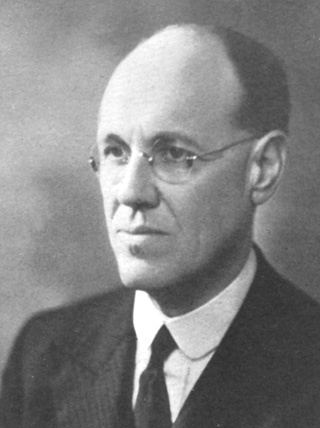
2) These Strange Ashes by Elisabeth Elliot
Documenting her first year as a single missionary in the jungles of Ecuador, Elliot recounts the unexpected trials she endured. God calls us to make sacrifices in His service. Yet often, when the offering has been consumed upon the altar, we don’t know what to do with the “strange ashes” that remain.
This book taught me to expectantly look toward the Lord’s redemptive purposes, even in the midst of brokenness and loss.
3) Lords of the Earth by Don Richardson
Stan Dale dares to enter the nearly impenetrable jungles of unexplored Papua New Guinea to live among the Yaki people. These stone-aged cannibals believe they are the “lords of the earth.” In time Dale discovers the Yaki’s ancient tribal laws, rigid decrees that perpetuate depravity and hopelessness.
The author, who personally knew Dale, gives us a riveting and detailed account of courage and determination. My take-away was realizing anew the power of the gospel to dispel even the deepest darkness.
4) Father of Faith Missions: The Life and Times of Anthony Norris Groves by Robert Bernard Dann
This man is unfortunately not well known in missionary circles today. Yet, his writings influenced generations of missionaries.
Groves was one of the first modern missionaries to minister among Muslims. Having moved his family from England to Baghdad, his efforts yielded little visible fruit in his lifetime.
Grove’s influence extends even to me. Many years ago my co-worker and I decided to look to the Lord alone to meet our financial needs. Our inspiration was the testimonies of George Mueller and Hudson Taylor. Their inspiration, I was later to discover, was the faith they had witnessed in Groves.
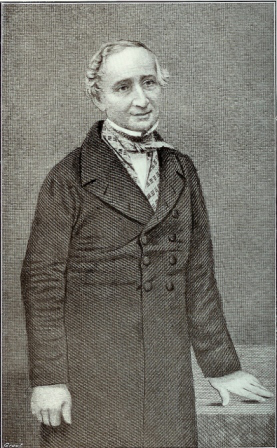
5) Mission: Venezuela: Reaching a New Tribe by Margaret Jank
The Janks ministered among the Yanaomo, a primitive jungle tribe in Venezuela. Their approach is one of the best examples I’ve read of sensitive cross-cultural ministry. The Janks allowed the Yanaomo church to develop its own cultural expressions of Christianity.
Having no expectations placed upon them as to how they should “do” church, the new believers willingly received God’s Word and effectively applied it in their midst .
This story checks me when I forget that I too read the Bible with preconceived notions. There is much to be said for letting the Word speak for itself.
There is apparently an updated version of this book, though I haven’t read it: Our WitchDoctors Are Too Weak.
6) J. Hudson Taylor: God’s Man in China by Mary Taylor
I don’t think anyone who knows the history of evangelical missions would ignore the impact of Hudson Taylor. When western missionaries were still cloistered in China’s coastal cities in the 1850’s, a young Taylor wouldn’t ignore the vast unreached areas of the interior.
In the early days, he ventured out alone. Scandalously donned in traditional Chinese dress, Taylor preached in ancient cities and in peasant hovels. He returned to England and pleaded on behalf of “China’s millions” who were living and dying without a single gospel witness. Out of these humble beginnings grew the China Inland Mission (CIM).
The story of Taylor’s unshakable faith is a must-read out of the missionary annals.
For a more personal narrative of Taylor’s spiritual development see Hudson Taylor’s Spiritual Secret.
7) John Paton: Missionary to the Cannibals by John Paton
This modern, abridged adaptation is based on Paton’s exhaustive two-volume autobiography. I would recommend tackling them if you have the time (and can find them).
Paton was a missionary par excellence. Called to the New Hebrides, he lived among cannibalistic island dwellers. In spite of the horrid tropical conditions, and in spite of burying his first wife and newborn within three months of arriving, he remained. All alone and fighting off the demons of depression, Paton was often on the run as hostile tribesmen tried to take his life.
Consistently returning good for evil, Paton won the hearts of the islanders through his godly character and consistent witness. His story always reminds me that no matter how tough things may seem, God’s grace is sufficient.
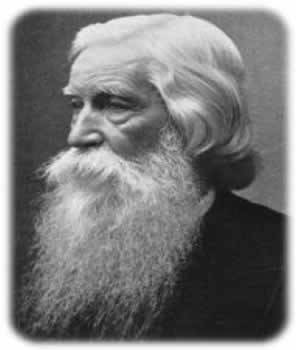
8) C.T. Studd: Cricketer and Pioneer by Norman P. Grubb
Here is the renegade. Studd was born into a wealthy family and attended Cambridge University. In fact, he was a member of the “Cambridge Seven.” This was a group of graduates who, to the shock of Britain and the world, forsook all to go to China as missionaries.
After seven years in China, Studd served for almost a decade in India. Then at a time in life when most of his peers were retiring, he set off for the unexplored jungles of the Congo. Beset with debilitating asthma, Studd was told he wouldn’t survive. But it was in central Africa that he undertook his most extensive missionary endeavors.
Never one to remain silent, Studd’s words and writings both rankled a lukewarm church and inspired generations to consider a call to the mission field. Studd taught me to stand on my convictions, even when I find myself standing alone.
9) D.E. Hoste: A Prince with God by Phyllis Thompson
Hoste succeeded Taylor as the director of the CIM. He served as years as a “grassroots” missionary and had a significant influence on Chinese Pastor Hsi (Another book I recommend for its viewpoint of western missions from the perspective of a national).
Hoste reluctantly entered CIM’s administration at Taylor’s request. As director, Hoste considered prayer the most important work he could do on behalf of the hundreds of missionaries he oversaw. He set aside hours every day—in the midst of administrative duties and copious correspondence—to pray.
Like with Fraser’s story, Hoste taught me that if I neglect prayer, my teaching and preaching will surely suffer loss.
10) Shadow of the Almighty: The Life and Testament of Jim Elliot by Elisabeth Elliot
The story of Jim Ellliot and his four fellow missionaries murdered by the Auca Indians in Ecuador is well known. Less acknowledged is the fact that Elliot only spent four years on the field before he lost his life.
This account, therefore, doesn’t focus extensively on his mission work.
His widow, Elisabeth Elliot, compiled and edited her husband’s journals, filling in the gaps where necessary. I read this book not long after I went to the mission field. I remember how profoundly Elliot’s single-minded devotion to the gospel challenged me. Here is a personal and powerful narrative of how God prepared a young man for missionary service.
Honorable Mention (Okay, I want to add a few more…)
From Jerusalem to Irian Jaya: A Biographical History of Christian Missions by Ruth A. Tucker
This is an accessible and succinct survey of evangelical missions. It’s an excellent primer on the most influential in Christian mission history .
Two things stand out to me in particular. The author doesn’t hesitate to point out mistakes, character flaws, and sinful behavior. She also highlights the often neglected contributions to missions made by single females and missionary wives.
Peace Child by Don Richardson
Richardson’s writes a graphic and stirring firsthand account of his time among the Sawi people of Western New Guinea. This book taught me the importance of taking the time to understand the cultural complexities and worldview of the people I work with.
The key to Richardson’s success among the Sawi was the God-given insight he received into the ceremony of the “peace child.” This was a mysterious and heart-wrenching ritual used by the Sawi to seal peace treaties with their enemies. It was only when Richardson understood the meaning behind it that he was able to effectively share the gospel with them.
The Little Woman by Gladys Aylward
Sorry, ladies. I fear I’ve read more biographies about men than women. I certainly don’t mean to minimize the significance of the ministries performed by the latter.
Aylward worked as a housemaid in England. While doing evangelism through her local church, she felt a call to China. So she proceeded to “borrow” books on the subject from her employer’s library (always returning them, of course!).
The CIM turned down her application due to her lack of academic training. They also feared she wouldn’t be able to learn Chinese. Not to be dissuaded, Aylward saved her money, bought a train ticket and proceeded to northern China alone.
The Lord opened incredible doors for her to minister to the marginalized women of China. She also adopted and cared for numerous orphans throughout her career. Aylward reminds me that the Lord will never leave or forsake those who wholly put their trust in Him.
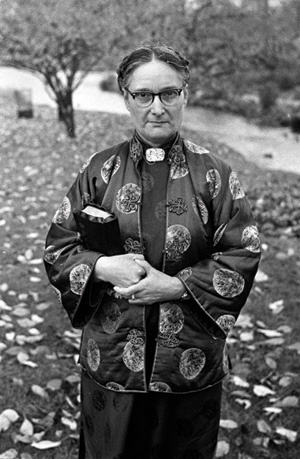
I’d love to hear from you. What’s your favorite missionary bio? Feel free to leave a comment about it!


March 17, 2016
Why I Read Missionary Biographies
I like missionary biographies. I’m admittedly biased since I am a missionary. I’ve read dozens upon dozens over the years. I’ve got shelves full of them that are waiting to be read. I collect them, old and new. I probably have more than I’ll be able to consume.
Yes, its an addiction. But a good one.
As a called and determined novice on the mission field some 17 years ago I had a realization. There are a lot of folks who’ve done this before. Surely they have something to teach me. So I started reading. The earliest one I remember was Hudson Taylor’ Spiritual Secret. That was followed closely by the condensed autobiography of John Paton.
I was hooked. And since then, I’ve given those two books to many others. They’ve served to whet their desire for the mission field as well.
Missionaries are a rare breed. By the very nature of their calling they’re individualistic, focused, able to endure hardship and self-sacrificing. At least, that’s what they used to be. And those are the examples that were held up before me.
The term “missionary” doesn’t mean what it once did. With the advent and subsequent explosion of short-term mission trips, the definition has changed. “Oh, how great that you’re a missionary! My granddaughter is too. She goes to Mexico for one week every summer,” is typical of numerous conversations I’ve had.
Going overseas to do occasional mission work is commendable. I don’t mean to belittle the experience. But taking short term trips doesn’t make someone a missionary. It makes them a temporary helper of a missionary.
Reading missionary biographies, particularly older ones, would clear this misunderstanding right up. The experiences and sacrifices and suffering of former missionaries should cause most of us to tread lightly when it comes to assuming the title.
So here’s seven reasons why I read missionary biographies
1) They remind me of the need for a strong devotional life.
What makes a man or woman of God?
What he or she does in secret.
I began noticing a pattern in the lives of missionaries by reading their biographies. They all had strong and habitual times of prayer and Bible study.
Most of them arose early to do so. On the mission field “early” means somewhere around three or four o’clock in the morning. The typical missionary hit the ground sprinting as demands on their time began at sunrise and didn’t subside until after dark.
Living in remote and primitive locations, many missionaries not only had full-time ministry obligations but they also had to simply survive. And the latter in and of itself easily ate up half of their time.
Where do you find the spiritual, mental and physical stamina for such a life? You find it in the Lord. You find it on your knees with His Word open before you. When a Christian’s witness and effectiveness begin to falter, the root cause is nearly always a neglect of the devotional life.
And what was good for the missionary is good for us all!
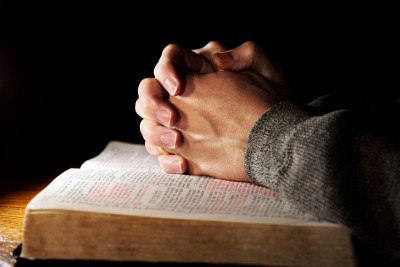
2) They remind me of the importance of memorizing Scripture.
This was another pattern I noticed. These folks memorized a lot of Scripture. Many missionaries of yesteryear had the advantage of growing up in churches that still emphasized Bible memorization. But regardless of whether they started young or a bit older, they put time into doing it.
They understood that God’s Word is their sword. They knew the importance of hiding the Word in their heart. They filled their quivers with the promises of God. When the needs arose, they had quick access to the right promise to claim.
They shared the gospel and preached in myriad and difficult settings. They never lacked for a word in season, or a theme upon which to expound. The Word buoyed them in their dark days, encouraged them in their fruitless seasons, and comforted them in their distress.
We would all do well to exercise such discipline and dedication in memorizing Scripture.
3) They spur me on to suffer for righteousness’ sake.
The reality is any “suffering” I’ve undergone is fairly tame compared to many of these folks. The examples we have in missionary biographies are of men and women who demonstrated what it truly looks like to count the cost.
They forsook homes, family, friends, and even fiancés in order to pursue the call. They suffered hunger, thirst and imprisonment. They were kidnapped for ransom, threatened by spear-welding natives, and pursued by cannibals.
They buried children, wives, husbands, and fellow workers. They spent their lives in strange and foreign lands, wore themselves out physically, and in some cases, made the ultimate sacrifice.
Yeah, they knew what it meant to suffer. They did not consider their lives as dear to themselves. They did it for the gospel. They did it for Jesus.
4) They remind me that God’s will is all that matters.
This is a tough one. Especially in the narcissistic, entitled, and selfie-obsessed age that we live. The missionaries that I’ve read about took literally the command to “go therefore and make disciples of all the nations.” They didn’t try to rationalize it or make the Lord’s final directive more palatable to the flesh.
Their watchwords were “Forward!” and “No Regrets.” They lived every moment to hear, “Well done, good and faithful servant.” They were zealous for the glory of God and consistently mindful of the example they set. They understood, when all is said and done, God’s will is all that matters.
5) They challenge me to be bold in my witness.
Missionaries weren’t fearless. But they were brave. They overcame their human fears to walk in obedience. They sought every opportunity to share the gospel.
This often meant ridicule and scorn, beatings and stones. Imagine a Chinese city. You are the only foreigner out of tens of thousands of people who are leery of your very presence. You teach a strange message in the market place, facing solemn, judgmental faces.
You are blamed when it doesn’t rain and when it rains too much. Sometimes you have to flee under the cover of darkness because a sympathetic local informs you of a plot to take your life. But day after day you walk the streets in the blazing sun, handing out tracts, having conversations in tea-shops, and finding new spots from where to stand and proclaim the gospel.
One day, however, a stooped beggar tracks you down. He tells you about the time many months before when he heard you preaching on the other side of the city. He hasn’t been able to forget your words. He wants to know more about this eternal life.
You briefly lift your eyes to heaven in gratitude. This is what it’s all about.
If you want to get motivated toward evangelism, read a couple missionary biographies.
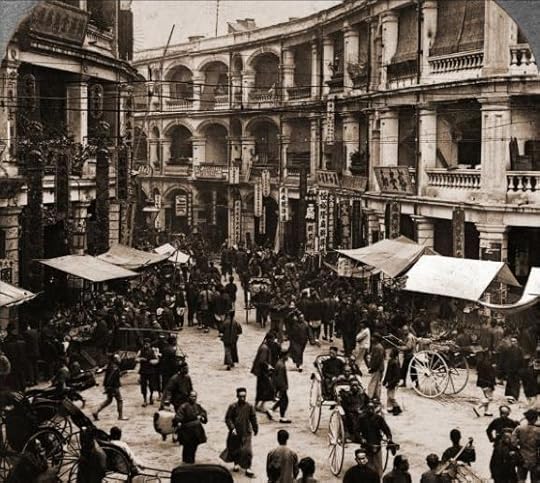
6) They teach me effective missionary methods.
Of course the Bible is the most important handbook on missiology. Nothing is new under the sun in the world of missions. These days we study the subject to death, perhaps (I fear) endlessly reinventing the wheel.
Just about every conceivable ministry approach has been tried. Successes and failures are documented. Guess where? In missionary biographies.
Missionaries of old didn’t necessarily have impressive-sounding strategies or five-point visions. But they did get down into the muck and mire and do the work. We have a lot to learn from their stories. Though we may have to read between the lines to extract their hard-earned lessons.
7) They teach me more about the love of God.
Missionaries knew God’s love. They had experienced it in their own lives. They longed to give it to others. They understood that God had demonstrated His love by giving what was most precious to His heart—His Son. Therefore, they desired to give all of themselves to express their everlasting gratitude.
Every act, no matter how menial, was done in the realization that it could be an act of love to God and man. Whether it was plowing a field in South Africa, treating boils in Nepal, or pleading on behalf of prisoners’ conditions in China, missionaries viewed every task as important.
_______________________________________
Missionaries of the past were not perfect. I don’t mean to give that impression. In fact, between the pages of every biography I’ve read there are signs of imperfections, weaknesses and even downright sin. They were sinners saved by grace. They were still working out their salvation. In that regard they were like us.
But they had traits I fear we as believers largely lack today. They overcame bouts of discouragement and depression. They had faith when everything around them fell apart. They stood against the very forces of darkness and snatched souls from within the gates of Hell. They thrived in environments that would break lesser men and women.
They were some of the finest and most accessible examples of Christian fortitude we have.
Pick up a missionary biography. Be challenged. Be encouraged. Fan into flames the smoldering embers of your former passion for the gospel. Let God speak through the lives of those whom He has used in profound and tremendous ways.


March 10, 2016
To Make the World A Safe Space

An op-ed piece in the New York Post asks in its opening remarks:
“How will today’s college students function once they leave campus and find the world no giant ‘safe space’ protecting them from things they don’t want to hear?”
The piece is commenting on Milo Yiannapoulos (who I neither endorse nor decry) and his recent visit to the University of Pittsburgh where he gave what certain students considered a dangerous talk. Yiannapoulos apparently hurt some students’ feelings. Adding insult to the First Amendment’s long list of recent injuries, attending the speech was not even compulsory.
You know what I do when I don’t think I’ll like a particular event? I don’t go. I know. Crazy.
You know what I do when I find myself at an event that I personally find offensive? I leave. Yep. I’m a nut-job.
You know what I don’t do? I don’t hop around, cry like a baby and aggressively bemoan how hurt and threatened I feel. I don’t demand counselling. I don’t insist upon a safe space (whatever that is). In fact, I would feel downright embarrassed if I acted like multitudes of college-attending millennials are acting these days.
Yes, yes. I know, I know. Off to the Gulag with me. Better yet, off with my head.
I see similar articles about the politically-correct disease spreading through college campuses on an almost daily basis. It drives me crazy (if you haven’t noticed). We seem to have forgotten that college is where young people are supposed to have their minds formed. Intellectual growth comes through being challenged, stretched and yes, even offended.
It’s not my problem if you get to college and you’re too emotionally immature to handle another person expressing their opinion. It’s your problem. Go back home. Live in mom and dads’ basement. Get a job. Grow up. Come back when you understand that college isn’t there to cater to your petty and infantile feelings. It’s there to give you an education.
Even worse than the students’ reactions, however, is that faculties are bending over backwards to accommodate them. At least the students are simply emotionally-stunted. They grew up in the selfie-obsessed age of Facebook and Instagram. They were coddled, their narcissistic natures constantly fed, their every whim and desire applauded. I guess they should be pitied.
But the professors and presidents have no excuse. Their motives seem to be even more petty: job security. They want to protect their positions, retire with a pension and live out their days in peace. Why else would someone with the opportunity to shape the next generation of thinkers and producers cower before these communist youth league-like demands? (I bet you didn’t know wearing tiny sombreros was criminal?)
The problem is, Mr./Mrs. Professor, if you give into these liberty-denying, rights-trampling ultimatums, you won’t live out your golden years in peace. You’ll live in the squalor and societal deprivation that these politically-correct types of attitudes ultimately create. The elderly aren’t honored in civilizations where free speech is scorned. They are plundered, neglected and finally discarded.
So what will these students do when they get out into the “real world” and “find the world no giant safe space”?
I’ll tell you what they’re going to do. They’re going to pitch the same fit they’re pitching now, except louder and more aggressively (which doesn’t even seem possible.) They’re going to be used to getting their way all the time by then. That’s what college taught them, you see. Some of them (how horrifying) are going to be CEO’s and politicians. And rest assured, they will do all that’s in their power to force the rest of us to accept their opinions.
They will be the same people who will abolish the Constitution as archaic and irrelevant, and regard the Bill of Rights as hate speech.
And that’s why I, and many others, decry the outrage going on at our college campuses. If you don’t speak or write in support of all speech (regardless of whether you agree with its content or not), you will lose your right to speak.
You will be forced to conform.
Then you will lose your dignity.
Then you will lose your self-respect.
And at the end of this dark path, you will politically, socially, and yes, even materially, lose it all.


January 26, 2016
Bursting the Campus Bubble
The college campus is a social system unto itself. We outsiders refer to it as academia. We expect the freedom and funding that academia receives to give us intellectual advances in civilization. We expect the recipients of higher education to be innovative, productive and on the cutting edge of science, technology and the arts.
We acknowledge that the campus is a bubble, an incubator for young, virile minds. We acknowledge that the time one spends within the walls of this bubble should be an educationally worthwhile season. And though we rib with tongue-in-cheek those professors who never leave its enclaves, we give them a pass because they are preparing others to go forth and carry abroad their messages of intellectual freedom and, hopefully, some notion of ethical obligation.
We don’t expect the bubble to become an end in and of itself. We don’t expect the graduate to enter the real world just as mentally and emotionally immature as when they entered the bubble. We are stunned by the outrageous cost of tuition verses the comparatively pitiful return. We feel sorry for the person holding a bachelor’s degree who can’t find a job because they majored in popular culture or puppetry or theme park management. In short, we expect more from the bubble.
Instead, we get a whole mess of college grads who should have saved their (parents’) money. They should have gone to a vocational school. They should have gotten an entry-level job and worked there way up the ladder. They should have nurtured a creative idea and started their own business. They should have, at the very least, taken a year or two off to travel, meet people and figure out what they heck they wanted out of life.
Instead, they learned how to view pornography. They learned how to mix drinks. They learned how to hook up. They learned the new liberalism that is unabashedly leftist and outright collectivist. They learned that capitalism is bad, that western civilization is hurtful and that the most productive thing to do with one’s time is to worry about a statue of a man who had slaves and incidentally penned the Declaration of Independence.
The bubble has betrayed us. Perhaps we ignored it for too long. We assumed all was well within. We shrugged because we were once in that bubble and we turned out okay. Perhaps we forgot that there is a whole generation of people who were raised in a culture descending into decadence, with a smart phone glued to their hand and a premature hunchback to accentuate their teenage frames.
These same socially underdeveloped and naïve youngsters then go to an institution that teaches them equality is God and no one should be left behind. It teaches them that the worse sin is to possibly hurt someone’s feelings, and that any perceived offense deserves to be punished. It teaches them that only certain people and groups have free speech, that one person can decide what books don’t get read, and that professors can be bullied into submission.
These institutions of higher education foster the notion that nothing is as important as getting a “like” on social media. They encourage narcissism, racial division and a loathing of costume parties. They lure these youth into a bubble, coddle them and send them forth completely unprepared for life and financially broke.
Yes, the bubble has betrayed us. And we’ve yet see the full consequences of this betrayal on society.


January 15, 2016
A Small Step for Freedom
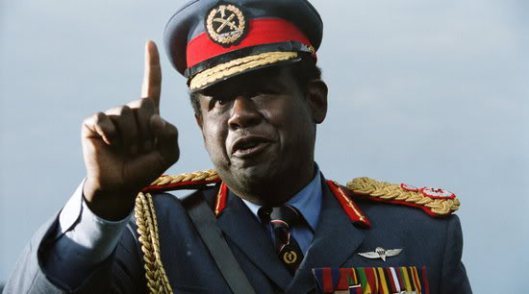
In my first post of the new year I’m pleased to write about a positive development. Irish evangelical pastor James McConnell was found not guilty. This is a tiny ray of hope in the encroaching darkness of religious censorship.
It’s tragic that charges were brought against McConnell in the first place. Thankfully, the judge had enough sense to not overstep the bounds of his legal jurisdiction, correctly stating, “The courts need to be very careful not to criticise speech which, however contemptible, is no more than offensive. It is not the task of the criminal law to censor offensive utterances.”
Well said, judge. It is not the job of the courts “to censor offensive utterances.” If it were, then speech would simply be judged in the court of public opinion. The problem with Mr. Public Opinion is that he is used by those in authority positions to condemn what they personally find offensive. That’s today’s tyranny.
Today’s tyranny doesn’t don military uniforms. Instead, it parades around in pin-stripe suits.
Today’s tyranny doesn’t pound a podium in the middle of a packed stadium. Instead, It raves and rants about microaggressions and reparations in ivy-league classrooms.
Today’s tyranny doesn’t scream and yell, spittle flying. Instead, it talks in measured and soothing tones while sneering at anger as an inappropriate reaction to the loss of liberty.
Today’s tyranny doesn’t have its detractors disappeared into the night. Instead, it openly, and with a straight face, has pastors prosecuted for “offensive” sermons.
Today’s tyranny doesn’t refer to the perpetrators of religiously-motivated violence as Islamic terrorists. Instead, it demonizes peaceful, evangelical pastors as criminals because they dare to speak their minds.
Today’s tyranny doesn’t take over newspapers and raid its opposition. Instead, it buys off its competition and ridicules “fringe” media.
Today’s tyranny doesn’t blame societal problems on a culture of violence and death. Instead, it projects the illusion that inanimate objects called guns are responsible.
Today’s tyranny is the most dangerous yet to be seen because it wears the guise of political correctness. Sometimes it even boasts a bushy beard, horn-rimmed glasses and talks with a lisp. It scoffs at those who disagree as uneducated and backward. It promotes freedom of speech for itself alone.
Obviously no one else is worthy to have an opinion.
SO, it’s refreshing to see than in at least in one courtroom in Northern Ireland a judge refused to violate a man’s right to express a personal belief. It’s a small victory for freedom and a not so insignificant chink in the shiny armor of tyranny.
May 2016 see more of the same!


December 22, 2015
Coming Soon!
The Pilgrim’s News was started as a small newspaper by a couple of missionaries in Belize, Central America back in 2004. This site will continue that tradition.
Stay tuned for posts coming soon!


The Pulpit is a Free Speech Zone
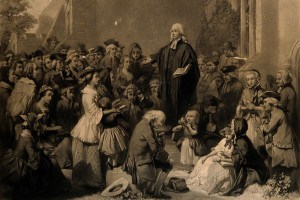
The trial for the evangelical Irish pastor James McConnell is gaining international attention, and well it should be. He is charged with making “grossly offensive” comments from his pulpit, statements that went out as a broadcast over the internet. Hence, the charge specifically reads, “improper use of a public electronic communications network.”
This begs the question, what were these comments that were so offensive they call this man to be brought up on criminal charges? It’s no surprise in our current political climate that the comments in question have to do with Islam. McConnell referred to the religion as “satanic” and “heathen.”
I’m not going to opine on the Muslim religion here. I am going to rant about freedom of speech. If it’s not protected in the pulpit, it’s not protected anywhere.
I’m not sure if Northern Ireland has a First Amendment, per say. But they are a part of the United Kingdom, whose political heritage claims the Magna Carta, John Locke and the balancing power of Parliament. We’re talking about the soil upon which the notion of individual liberty budded. It is in McConnell’s natural right as human being within a supposedly democratic and free society to preach what he desires from the pulpit.
I can see McConnell not being able to make such comments in Saudi Arabia without legal (and perhaps lethal) repercussions. But for him not to be able to say what he said in Northern Ireland is a slap in the face to freedom. Shame on the government of Northern Ireland.
Shame on them because freedom of speech covers offensive speech. After all, anyone’s opinion will inevitably offend someone. To prohibit “offensive” speech is to ban talking all together.
But of course, banning all speech is not the intent. Banning certain kinds of speech made by certain individuals is. McConnell’s evangelical opinions are condemned. But what about the imams in Northern Ireland who preach that Christianity is “satanic” and that western civilization is the “Great Satan”? Maybe I missed the simultaneous trials going on targeting Muslim clerics who’ve made “offensive” statements against Christianity.
This is nothing less than selective enforcement. Only particular religions and groups enjoy free speech. Surprise, surprise.
The spin placed upon this case by the courts is this: because the statements went out over the internet, they are liable for prosecution. I thought speech was still free on the internet. I guess not.
I’m a Christian. I’m an evangelical. I often preach from a pulpit. And I say what I feel God lays upon my heart. If I were to heed the social critics, I would cower in fear. I would apologize for what I believe. I would put duct tape over my mouth and grovel at the feet of political correctness.
But I’m not going to do any of that.
I wrote The Hidden Altar back in 2009 (but didn’t publish it until 2012). One of the main characters is an American pastor who is charged under anti-terrorism laws for a comment he inadvertently makes from the pulpit. I’ve had people that read the novel tell me they really enjoyed the story, but the scenario seemed unrealistic.
When I read an article like this, it only confirms to me that in fact The Hidden Altar’s story-line is not fantastical. We’re seeing it happen right now.
At risk of getting preachy here, I have to ask. Where do you stand on this issue? Will you tolerate the selective persecution of free speech? Will you remain silent? Today it’s some unknown Irish pastor. Tomorrow it will be an American pastor. Soon enough, it will be you.


December 14, 2015
I Weep For Huck Finn

I liked Huckleberry Finn. It’s been a while since I’ve read it. I should probably read it again to see what I think about it these days. Regardless, I am considering buying a few extra copies and handing them out. Talk of book banning always motivates me to promote seditious material.
Of course, striking ole’ Huck from a school reading list is nothing new. It’s also merely symptomatic of much, much bigger problems. All I can picture is bonfires surrounded by masses of college-attending zombies, gleefully tossing “offensive” materials into the flames as they wear malicious smiles and smugly think themselves progressive. How terrifying. (insert shudder here)
According to this article, “…a Montgomery County school removed Huckleberry Finn from its curriculum after a group of students said the book made them feel uncomfortable.”
So feelings have really become the new standard by which we decide what can be read and what can’t. I guess that means I can run around demanding that anything that makes me “uncomfortable” must be struck from society. Even if I could do something so ludicrous, I wouldn’t.
The annoying thing about free speech is that it includes all speech—even the speech you or I don’t like. The satisfying thing about free speech is that Mark Twain is allowed to write what he wants and I’m allowed to read it.
Guess what. Some white people in nineteenth-century America used the N-word.
Shocker, I know.
Guess what else. Part of learning who we are and where we’ve come from is reading books that were written in time periods when people spoke and acted in ways that wouldn’t be socially acceptable today.
One way to ensure that a student doesn’t receive an education is to filter the information they receive so they never learn to think for themselves. Another way is just to ignore the parts of history and literature that they don’t like.
I think the scariest statement in this article is, “We have all come to the conclusion that the community costs of reading this book in 11th grade outweigh the literary benefits.”
Community costs? Where did that come from? Right out of Mao’s Little Red Book?
All I can say is look out when classic literature begins to be sacrificed for community “feelings.” I can’t even believe that I’m having to comment on it. Suddenly it’s normal in a supposedly free society to ban a book because someone might get their feelings hurt. Truth be told, the very idea of catering to community costs offends me.
Liberty–based societies emphasize the freedom of the individual. Collectivist societies emphasize the good of the community. In the latter some bureaucrat gets to decide what is best for everyone and enforces that idea via state directive. You and I don’t get to choose what we think is best. It is decided for us.
I was entertained and intellectually enriched by reading Huckleberry Finn. I’m glad I took the time to read it. You may disagree. That’s fine. But please, Mr. Principal (or whoever else), don’t pretend that you decree the standard for making judgments on behalf of the community.
I don’t have a right not to be offended. And I accept that. In this real world in which we live, contrary to the group-think city-states that colleges and high schools have become, there is no “safe space” from offense. The First Amendment is politically the safest space for us all.


December 12, 2015
The Murky Swamp of Libertarianism

I read with a chuckle today this Washington Post article. The writer can’t stand that Trump is doing so well in the polls. He is perplexed and annoyed that Trump would endorse someone like Alex Jones by going on his radio show. The charge leveled at Trump is that his “more controversial assertions…come from the murky swamp of right-wing, libertarian and flat-out paranoid sources.” I’m not a Trump supporter, but goodness me, I didn’t realize that right-wing, libertarian views slithered out of a murky swamp.
If so, I guess left-wing, liberal views floated down from the heavenly spheres.
Let me try to understand. Free speech, freedom of the press and freedom or religion (the First Amendment) slithered out of a murky swamp. The right to self-defense (the Second Amendment) slithered out of a murky swamp. The right to privacy (the Fourth Amendment) slithered out of a murky swamp. After all, the Bill of Rights is a “libertarian” document.
That means that “safe spaces,” the banning of classic literature, the promotion of internet censorship, the attack on Christmas, gun registration, and mass government surveillance floated down from the heavenly spheres.
I think it’s interesting how demonized Trump is by the left, especially since I remember another candidate in 2008—a senator from Illinois—who was wildly popular, telling the masses what they wanted to hear. It was something about fixing the economy and giving everyone free healthcare. A few right-wingers I know thought this man becoming president would be the end of the world, or at least the end of the nation. They kind of viewed him like so-called liberals view Trump.
Apparently, if you question the official story about anything you yourself crawled out of the murky swamp of slimy, right-wing libertarianism. This includes considering the mountain of evidence bringing into question the official story of Oklahoma City. This includes questioning the “safe and effective” vaccine narrative. This includes being concerned that fluoride might actually cause health problems (even though Harvard is concerned). This also includes questioning Obama’s origins, especially since Ben Carson got raked over the coals for a few possibly distorted details in his autobiography (I’m not a Carson supporter either, by the way).
However, I don’t think it is bombshell information that The Washington Post is a liberal publication that floated down from the heavenly spheres.
What I do find interesting is how obviously terrified the writer of this article is of rising “fringe” media. Apparently I should trust the traditional, mainstream media outlets but turn my back on information I might stumble across in the backwaters of the internet. How about this. I’ll receive all my news with a healthy dose of salt, mainstream or otherwise. I’ll do my own research. I’ll come to my own conclusions.
I’ll hold Trump to the same standard that I hold Hillary, or Bernie or Obama. That is, when it comes to my political views, I’ll hold them all up to the Constitution and Bill of Rights. I’ll dunk them in the murky swamp of libertarianism (they might meet folks like John Locke and Thomas Jefferson hanging out down there). I’ll even consider an article from a “fringe” website. In fact, I might be more inclined these days to give credence to the latter over the mainstream view.
I might be tempted to do that because freedom of the press means anyone can take up the reporter’s mantle. What makes me leery is not investigating the moon landing. What makes me leery is some reporter from the Washington Post presuming to tell me what I’m supposed to believe and what I’m not.
That, my friends, is totalitarianism. But maybe totalitarianism floated down from the heavenly spheres.


November 16, 2015
The Drums of War
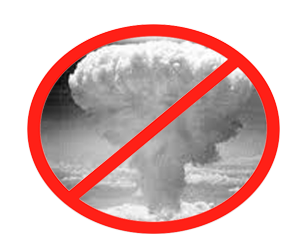
Then events that took place in Paris on Friday are tragic and reprehensible. They are examples of real terrorism. We should all be outraged and saddened by the darkness that dwells in the hearts of those who would kill and maim in the name of religion. My prayers are with the French people at this time, for we are all in this together.
That said, let me comment on what is already raising my eyebrows in the aftermath of the Parisian attacks. The first of these are some Facebook posts I saw this weekend. They were reminiscent of what I remember hearing after 9/11. That is, there’s already a whole lot of war-mongering going on.
When I say war-mongering, I mean that knee-jerk reaction that calls for the wholesale extermination of large population swaths in the middle east. I’m not exaggerating. I actually saw a picture posted displaying a nuclear mushroom cloud with the caption “August 6, 1945.” The message was that the “solution” for ending terrorism is to deal with it in the same manner that the US dealt with the Japanese.
Even if this was supposed to be a joke, I fail to find the humor in nuclear holocaust. In case nobody noticed, the bombs dropped on Hiroshima and Nagasaki killed tens of thousands of civilians. Nor do jokes about nuclear war take into account the number of countries that now possess nuclear weapons. There’s no longer any such scenario as a one-sided strike.
I then turn on the radio Sunday morning and hear about the pope throwing around the phrase “piecemeal world war 3.” An increase in international terrorist activity could very well spiral the world into another world war. But we should do all we can to avoid that. World wars never turn out well for anyone, even the “victors.”
Therefore, it’s highly concerning that the pope, who millions of people look to as an authority on spiritual and political matters, would even bring such a phrase as “World War 3” into any conversation or speech. All that does is plant the idea into the minds of people who are already hopping mad and looking for any justification to act in an irrational and rash manner.
It’s not that ISIS doesn’t merit an appropriate response. They have certainly proved themselves a force that needs to be reckoned on an international scale. But recent history should have taught us that rushing into war is is fraught with undesirable consequences (“collateral damage”, I believe, is the blithe expression). Look at Iraq and Afghanistan. Neither worked out too well.
Iraq had absolutely nothing to do with 9/11 and the “intelligence” to justify the invasion has been proved faulty. Let’s also not forget the one million dead Iraqis as a result.
The danger lies in those heat of the moment decisions, or the support that’s given to such decisions by an emotionally-charged rather than rationally-informed populace.
I hear in the distance the drums of war. But let’s consider the innocent. Let’s remember the military-industrial complex that Eisenhower warned about. And, oh yeah, let’s consider the crumbling economy and the fact that international wars always distract people away from reflecting on their domestic woes.
Let’s not be duped again.






